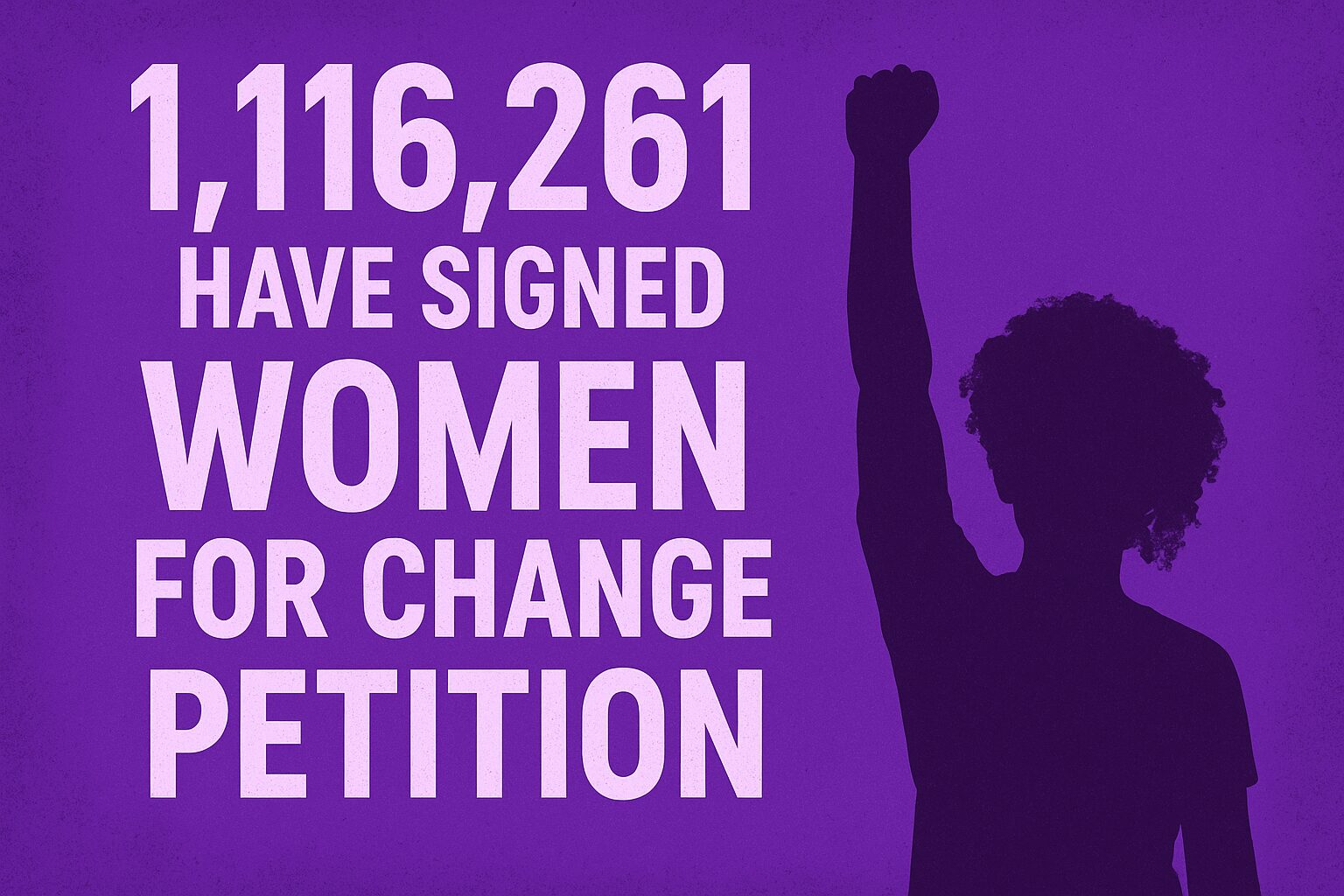It took a country shutting down, a million signatures, and a tidal wave of grief but South Africa has finally acknowledged what women have known for years: GBV is a national emergency.
South Africa (22 November 2025) – South Africa woke up to a powerful shift this week. After years of heartbreak, marching, pleading and pushing from activists, survivors and ordinary citizens, President Cyril Ramaphosa finally confirmed that gender-based violence will be classified as a national disaster.
The announcement came during the G20 Summit in Johannesburg, the biggest global stage our country has, after Women For Change and their supporters made it impossible for leaders to look away any longer.
Speaking at a civil society sideline event, he lamented the toll of violence on women and girls, declaring that “no society can thrive for as long as gender-based violence and femicide continue to deny women their agency”. Ramaphosa noted that “women are crying out” for stronger action and that urgent, extraordinary measures are needed to end the scourge. In a firm commitment, he announced that South Africa “will now classify gender-based violence and femicide as a crisis that needs to be addressed,” effectively elevating GBV to the level of a national emergency.
This announcement set in motion a formal process: by Friday, Cooperative Governance Minister Velenkosini Hlabisa confirmed that the National Disaster Management Centre (NDMC) had officially classified GBVF as a national disaster under South African law.
“This decisive action follows a thorough reassessment of reports and submissions… After evaluating the persistent and immediate life-safety risks, the NDMC concluded that GBVF now meets the threshold of a potential disaster,” Hlabisa explained
Crucially, this classification does not invoke emergency decrees or martial law; instead, it galvanises existing structures and resources.
“It reinforces and strengthens the systems already in place,” Hlabisa said, linking the disaster designation to bolstering initiatives like special Sexual Offences Courts, Thuthuzela Care Centres for survivors, and a 90-Day GBVF acceleration plan.
“Above all, it confirms a fundamental truth: GBVF is not a women’s issue. It is a national crisis,” Hlabisa stressed.

Women For Change’s petition, signed by more than 1.1 million people, has been the beating heart of this fight. Founder Sabrina Walter called the declaration “a victory for every survivor who refused to be silent”.
“For almost ten years, I have listened to the most horrific stories imaginable. I have witnessed the unbearable grief of families who had to identify the bodies of the women they loved. I have sat with survivors who carry their trauma in every breath they take. Women For Change has carried these stories with deep honour and relentless determination.”
“Today, that persistence has been recognised. We have won. Our petition – backed by more than 1.1 million people across the world – demanding Gender-Based Violence and Femicide (GBVF) be declared a National Disaster – has succeeded.”
Her words carried the exhaustion of years, but also a spark of hope South Africa desperately needs.
And that spark turned into something unforgettable on Friday.
On the 21st of November, women across the country withdrew their labour, their emotional load, their care work. Everything. Some stayed home. Others gathered in parks, streets and campuses. At midday, thousands lay silently on the ground for 15 minutes… one minute for every woman who loses her life to GBV each day.
It wasn’t loud.
It wasn’t chaotic.
It was grief, unity and power taking up space together… and it moved the nation.
Good Things Guy joined the shutdown too. Our office closed for the day. No new stories. No campaigns. No noise. Just solidarity.
“Good things mean nothing if our women are not safe.”
The classification doesn’t magically fix the problem but it finally names it for what it is: a national crisis needing coordinated, urgent action. It forces every government department to step up. It fast-tracks support services like Sexual Offences Courts and Thuthuzela Care Centres. It puts the issue at the front of the national agenda.
And, importantly, it tells every survivor: “We see you. We’re not pretending anymore.”
What Needs to Happen Next
Activists are celebrating, but they’re also crystal clear: this is just the start. The disaster declaration must come with budgets, timelines and accountability.
More detectives.
More shelters.
More training for police.
Harsher consequences for perpetrators.
And a country where women are believed the first time they speak.
Sabrina Walter summed it up best, “This is only the beginning. And we will not stop until every woman is safe.”
The energy of Friday’s shutdown, the silence, the tears and the unity felt like a line in the sand. South Africans are tired of mourning. Tired of hashtags. Tired of fear. But for the first time in a long time, there’s a feeling that something real is shifting… and it is only because women made it shift.
The country has taken a bold step.
Now we need to make sure it becomes a better tomorrow, not just a headline.

